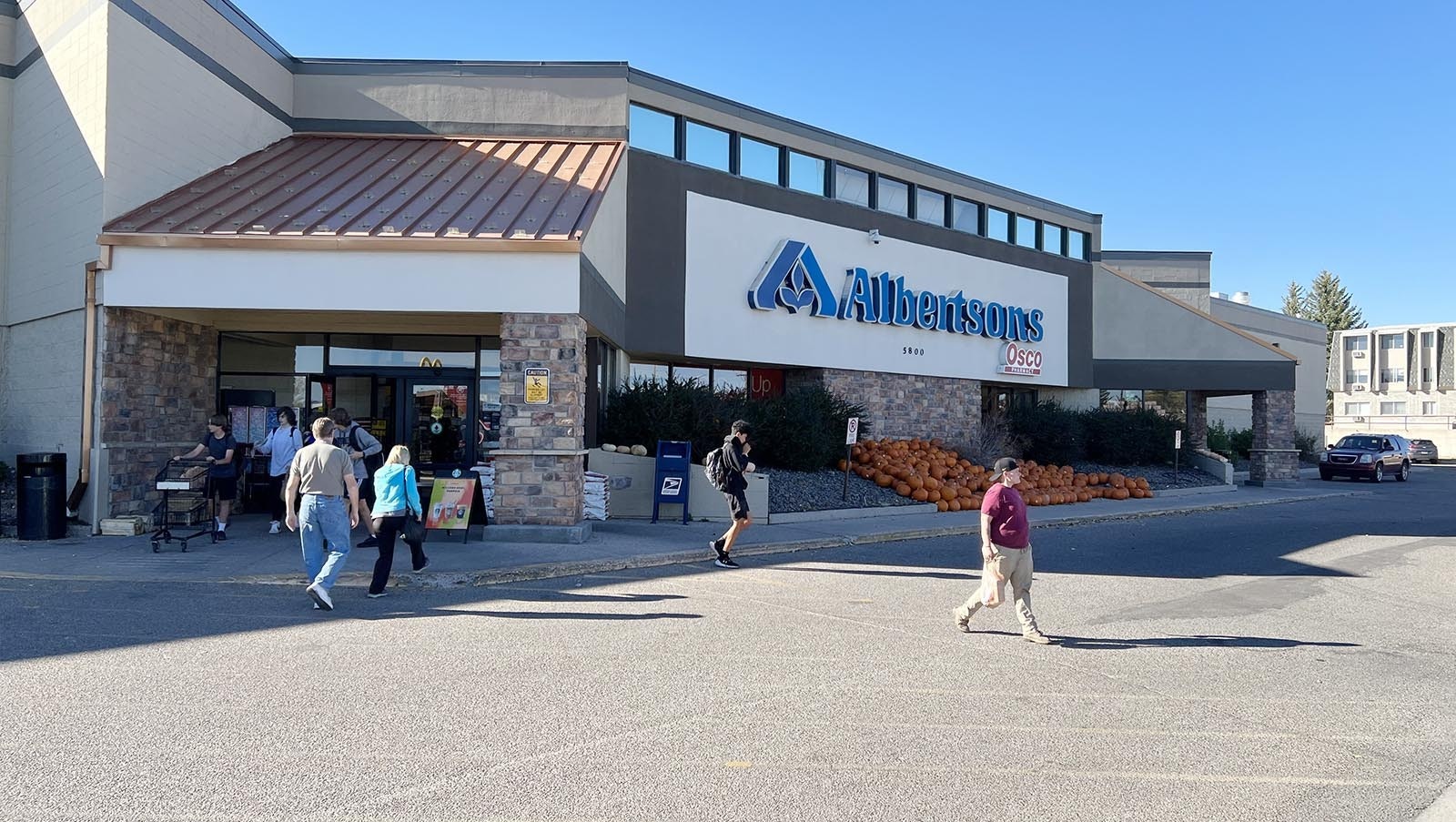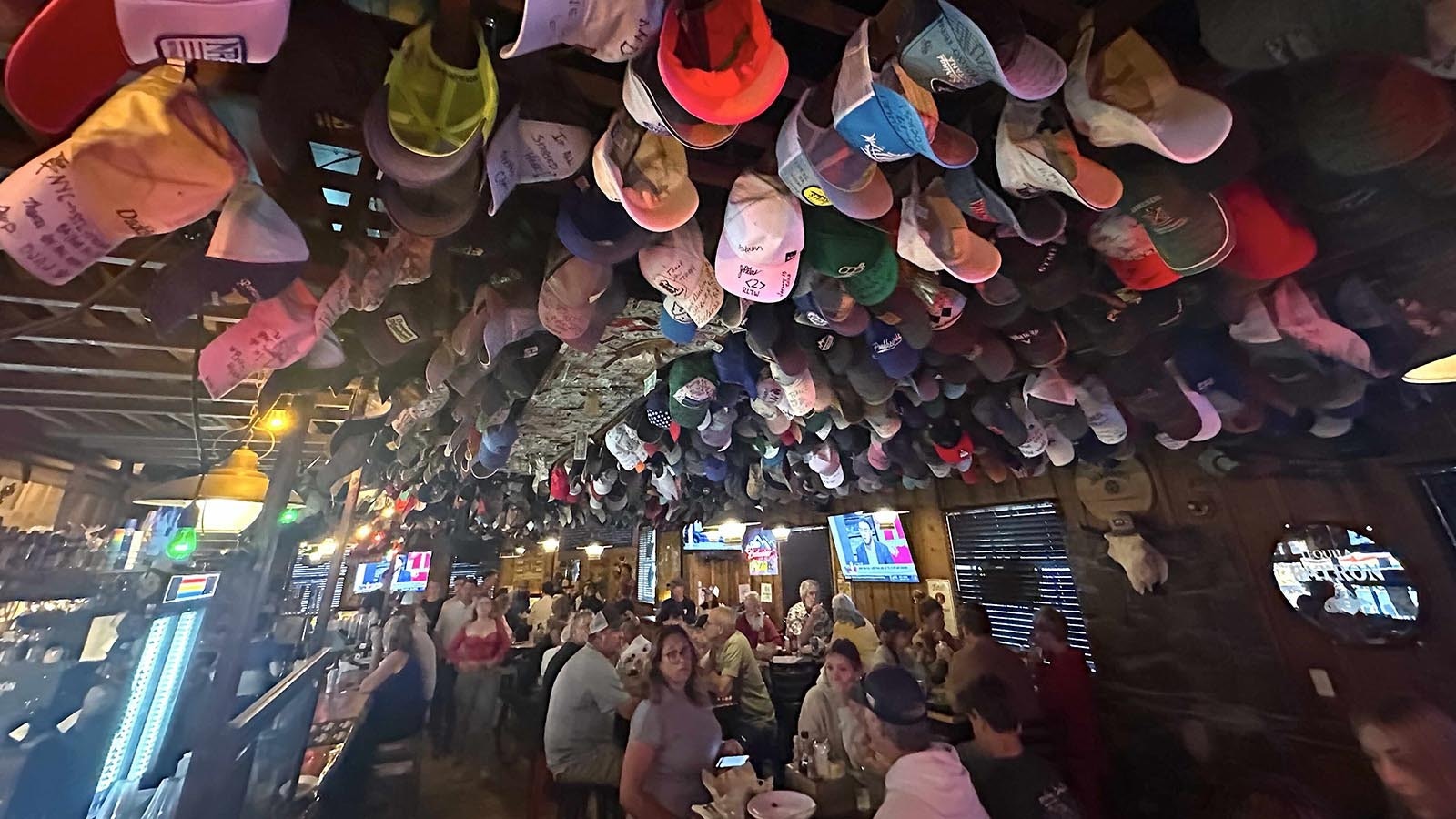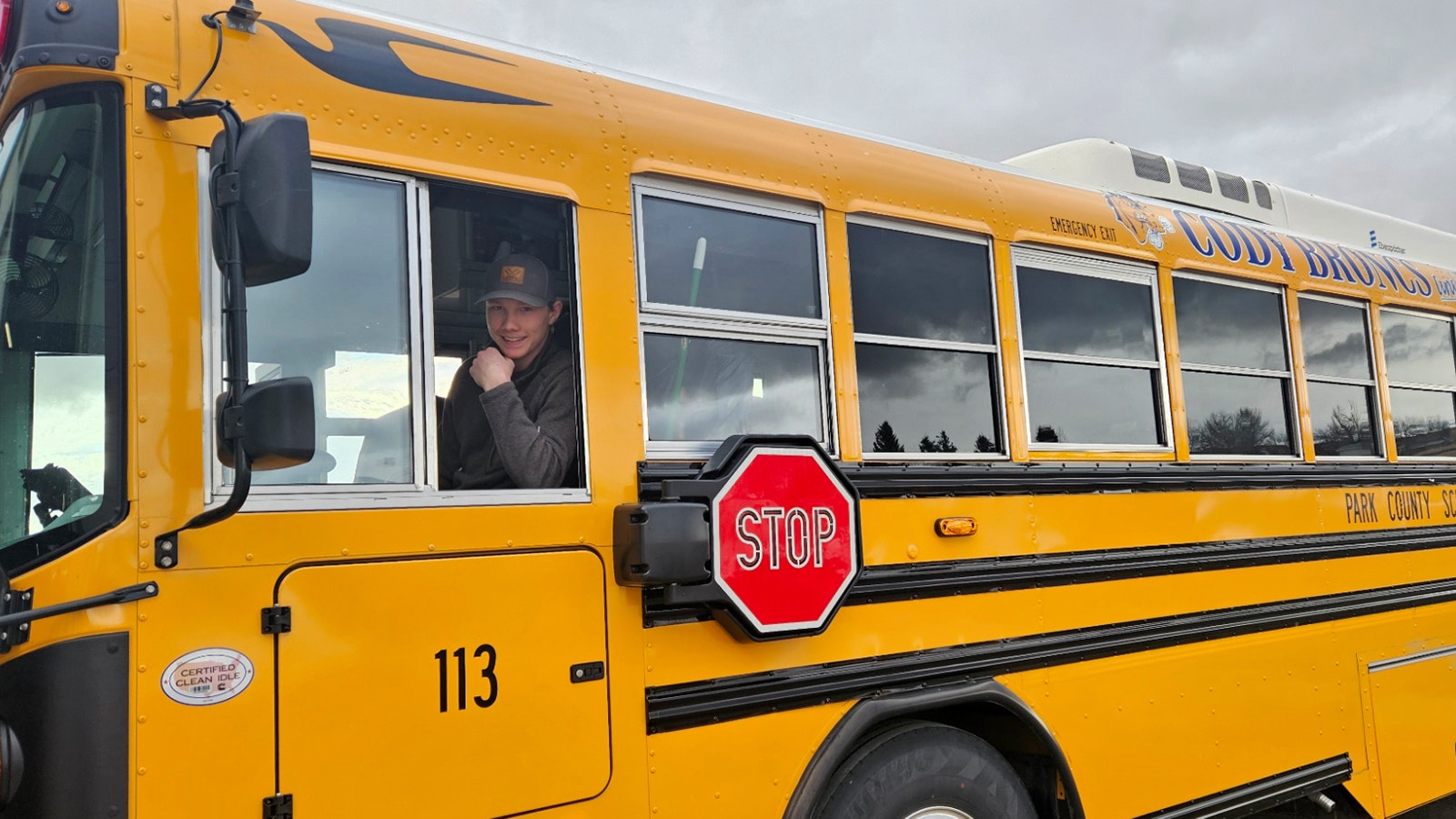While Wyoming has not put out a public statement about the $25 billion merger between grocery giants Albertsons and Kroger, the state is listed in an SEC filing by Albertsons as among those reviewing the mega merger under state and federal antitrust laws.
Wyoming appears in a list of 17 states, including the District of Columbia, that have been provided waivers by Albertsons and Kroger to coordinate their reviews with the Federal Trade Commission’s ongoing review.
The Wyoming Attorney General’s office did not return a Cowboy State Daily email Monday requesting comment on its review. It’s not known if any Wyoming public comment sessions, like those being held in Colorado, to gather testimony from the state’s 750 grocery workers affected by the Albert-Krogerson deal.
Among the other states listed as reviewing the merger are Alaska, Arizona, Arkansas, California, Colorado, Idaho, Illinois, Maryland, Nevada, New Mexico, Oregon, Texas, Vermont, Virginia, Washington and the District of Columbia.
The listing of states is in a revised schedule 14C Information filling available online.
Merger Would Create Grocery Giant
Kroger and Albertsons are already the Nos. 1 and 2 largest supermarkets in the nation. If the merger goes through, the two chains between them would have 4,996 stores, or about one-fifth of the supermarket sector.
The company has said it would spin-off or sell between 100 and 375 stores to maintain competitiveness in the supermarket sector.
Albertsons has said it will use savings created by better efficiencies to both lower grocery store prices and improve worker’s wages.
But the merger has been criticized by UFCW Local 7, a union that represents 750 Wyoming grocery store workers, which says the all-too-familiar refrains from the two chains are empty promises.
Because so many stores overlap, particularly in the West, Local 7 fears the merger will cause store closures and job losses, as well as higher prices, which is what Local 7 President Kim Cordova has told Cowboy State Daily happened when Albertsons and Safeway merged in 2015.
Albertsons sold off 168 stores to Haggen at that time as part of a deal to maintain competition in the sector. But Haggen went bankrupt less than a year later.
Albertsons then bought up most of the failed stores.
“All of that was a debacle,” Cordova has told Cowboy State Daily. “These big companies, they’re going to divest low-performing stores or sell those stores off. They’re selling them to themselves. It’s just a way to get this merger to go through.”
Opposition Continues To Build
Four states filed suit trying to stop the payment of a $4 billion pre-closing dividend to Albertsons shareholders ahead of the merger, but so far those lawsuits have not made much headway in court.
The Washington Attorney General’s effort to block the dividend payment was turned aside, and the judge on a lawsuit filed by California, Illinois and the District of Columbia attorneys general declined to block the payment of the Albertsons dividend ahead of hearing the matter.
The attorneys general in both suits made similar allegations, that the dividend would weaken Albertsons and make the merger too big of a deal to fail.
Washington Attorney General Bob Ferguson pointed out in his suit that Albertsons is taking a loan of $1.5 billion to make the payment, which he said is extraordinary given the impending merger.
Albertsons, meanwhile, has said that the dividend payout, despite requiring a $1.5 billion loan, is not an excessively high debt load for Albertsons.
“After payment of its special dividend, (Albertsons) will remain in excellent financial health with relatively little debt,” Albertsons spokesman Matt Dowe has told Cowboy State Daily. “In fact, its debt ratio will actually be 1.9x, which is lower than in recent years. This continues a trend of reducing the company’s leverage.”
Since those lawsuits filed by the attorneys general of four states, a group of 25 consumers across multiple states have filed suit in California seeking not only to unwind the $4 billion payment, but to block the merger itself.
It’s not clear at this point what that suit could accomplish now that the pre-closing dividend has already been paid out.
Albertsons continues to maintain that the merger is the best way for the two chains to remain competitive in the grocery market sector.
Big Mergers Not Fashionable
The Biden administration has already signaled that it will take a much more critical stance of mergers than has been the case in the past, with an executive order that directs the Federal Trade Commission and the Justice Department to scrutinize such deals more thoroughly.
Corporate consolidation is undermining the American economy, Biden’s order says, which is strangling innovation and leading to higher prices and fewer choices.
“The rate of new business formation has fallen by almost 50% since the 1970s, as large businesses make it harder for Americans with good ideas to break into markets,” the order states.
Meanwhile, FTC chair Lina Khan has not been bashful about a rather unconventional inquiry into the Albert-Krogerson deal.
Traditionally, the FTC has looked just at specific geographic areas and overlapping stores to determine whether a deal is anti-competitive. But, in this case, according to a Wall Street Journal report, the FTC is asking retailers and wholesalers across the United States for their views of the merger.
The FTC is looking as shopping data, pharmacy operations, store labels and labor dynamics as well.
What Workers Say
Part of that has been testimony from grocery store workers, among them Sandra Chavez, who is with Local 7.
“I have given my blood sweat and tears for 40 years for both Kroger and Albertsons stores, and I am now approaching retirement,” she told the FTC during a recent hearing. “One of my main concerns is what is going to happen to my pension if hundreds of stores are closed or divested and become non-union? Or, if stores are sold, those under new ownership fail like they did in the Safeway-Alberstons merger in 2015?”
Either scenario would cause the pension fund the 60-year-old is relying on to fail, endangering her retirement.
“I’m the sole provider for myself, and I’m scared to lose a lot of money that I’ve worked very hard for,” she said.
Colleagues at her store, meanwhile, also are on pins and needles, she said.
“They are uncertain as to what is going to happen,” she said. “Most people are concerned about getting let go. Older workers are concerned with their retirement or losing hard-earned seniority if they have to change companies.”





